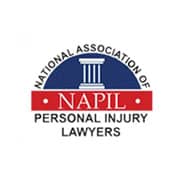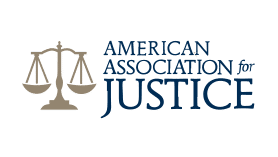If a slip and fall has happened to you on someone else’s property in Tulsa, you should know that Oklahoma law offers you protection.
The legal principle of premises liability holds property owners responsible for keeping their spaces reasonably safe for visitors. It means an owner who knew about a dangerous condition—or should have known about it—and failed to fix it or warn you may be held accountable for the injuries you sustained.
Proving this can be challenging, especially when you’re already dealing with the physical pain and financial stress of an injury. But you don’t have to figure this out on your own. At Carr & Carr Injury Attorneys, your dedicated Tulsa slip & fall lawyer is here to guide you. Our firm has been helping injured Oklahomans for decades.
For a free, confidential conversation about your case, call us at (918) 747-1000.
Why Trust Carr & Carr With Your Slip and Fall Claim?
A History of Helping Oklahomans

For over 50 years, our firm has been a steadfast part of the Tulsa community, dedicated to helping people injured through no fault of their own. Since 1973, we have focused our practice on advocating for individuals against insurance companies and large corporations. We live and work here, and our commitment is to the people of Oklahoma.
We understand the uncertainty that follows an injury, from the medical bills flooding your mailbox to the income lost from being unable to work. That’s why we handle slip and fall cases on a contingency fee basis. You pay us nothing unless we secure compensation for you. There are no upfront costs. Our fee is a percentage of the recovery we obtain for you.
What You Can Expect From Our Team
- Free Case Review: We will listen to your story and give you a straightforward assessment of your legal options, at no cost.
- Direct and Personalized Attention: You are not just another case file. Our team will be available to answer your questions and keep you informed.
- Conveniently Located: Our Tulsa office is at 4416 South Harvard Avenue, just south of 41st Street, making it easy to meet for a confidential discussion.
How Much Is My Slip and Fall Case Worth?
The Goal of Compensation
A personal injury claim is meant to provide financial stability to cover the losses from the accident, relieving the financial pressures so you can focus on rebuilding your life.
Economic Damages: The Billable Costs of an Injury

These are the tangible losses, the ones that come with a clear price tag. We work to account for every expense you’ve faced and will face.
- Medical Expenses: This covers everything from the first emergency room visit and hospital stay to future surgeries, physical therapy, medications, and any medical equipment you might need.
- Lost Wages: This is direct payment for the paychecks you missed while unable to work.
- Loss of Earning Capacity: If your injuries prevent you from returning to your old job or limit your future earning potential, this damage addresses that long-term financial loss. It acknowledges how the injury has rewritten your professional future.
Non-Economic Damages: The Human Cost of an Injury
These damages compensate for the ways an injury changes your life that don’t come with a receipt. Their impact is just as real and, in many cases, more significant.
- Pain and Suffering: This accounts for the physical pain and emotional distress you’ve endured—the pain that flares up on cold mornings or the anxiety that accompanies each new medical bill.
- Loss of Enjoyment of Life: This addresses the hobbies, activities, and daily joys the injury has taken from you, whether it’s playing with your children, gardening, or simply taking a walk without pain.
- Disfigurement or Scarring: Compensation for permanent changes to your appearance that serve as a constant reminder of the accident.
Punitive Damages: Punishing Reckless Behavior
In rare cases where a property owner’s conduct was exceptionally reckless, Oklahoma law allows for punitive damages. These are not meant to cover a loss. Instead, their purpose is to punish the wrongdoer and send a clear message to discourage similar behavior. Obtaining these damages requires proving the owner acted with a conscious disregard for the safety of others.
Where Do Slip and Fall Accidents Happen in Tulsa?
Common Hotspots for Falls
A fall can happen anywhere, but they frequently occur in locations where maintenance is overlooked or hazards are common. These are not random events; they are often the predictable result of unsafe conditions.
- Grocery Stores and Big-Box Retailers: Spills in aisles that aren’t cleaned up, recently mopped floors without “wet floor” signs, and cluttered walkways are frequent culprits in busy stores along corridors like Memorial Drive or Mingo Road.
- Restaurants and Bars: Spilled drinks, greasy kitchen floors tracked into dining areas, and dim lighting create dangerous conditions, especially in popular areas like the Blue Dome District or Brookside.
- Parking Lots and Sidewalks: Cracked pavement, potholes, and poor lighting create tripping hazards. Tulsa’s weather, from icy winter mornings to heavy spring rains, make these surfaces treacherous.
- Apartment Complexes and Office Buildings: Worn carpeting, poorly maintained staircases without proper handrails, and the failure to clear ice or snow from common areas can lead to serious falls.
Oklahoma’s Premises Liability Law
What is “Premises Liability”?
In simple terms, it’s a legal concept that requires property owners to keep their property in a reasonably safe condition for people they invite onto it, like customers or guests. This duty isn’t absolute, but it does require them to act with reasonable care.
The Key to a Claim: Proving Negligence
To have a successful claim, your lawyer must demonstrate that the property owner was negligent. This means proving four things:
- A Duty of Care: The property owner had a legal responsibility to you.
- A Breach of That Duty: The owner knew or should have known about a dangerous condition but failed to fix it, block it off, or adequately warn you.
- Causation: This specific dangerous condition directly caused your fall and injuries.
- Damages: You suffered actual harm, such as medical bills, lost income, or physical pain.
What Does “Should Have Known” Mean?
This is a legal idea called “constructive notice.” It means that even if an owner didn’t have direct knowledge of the hazard, the condition existed for so long that a reasonable owner should have discovered it. Think of it this way: a carton of milk dropped by another customer 30 seconds before you fell is very different from a puddle from a leaky freezer that has been growing for hours, evidenced by dirty tracks through it. The second scenario suggests a lack of reasonable care.
Common Causes and Injuries We See
Causes:
- Wet and slippery surfaces from spills, tracked-in rain, or mopping without signs.
- Uneven sidewalks, broken tiles, or cracked pavement.
- Poor lighting in stairwells, hallways, or parking lots that hide hazards.
- Loose carpets, rugs, or floorboards.
- Cluttered aisles and walkways that block a clear path.
Injuries:
- Hip, wrist, and ankle fractures, which are particularly common and may require surgery.
- Spinal cord and back injuries, including herniated discs.
- Traumatic brain injuries (TBIs), from concussions to more severe injuries with long-term consequences.
- Severe sprains and torn ligaments in knees and shoulders, which can lead to chronic pain and instability.
Dealing With the Property Owner’s Insurance Company
A Fundamental Conflict of Interest
Soon after your fall, an insurance adjuster for the property owner might contact you. It’s important insurance companies are for-profit businesses. Their goal is to resolve claims for the lowest amount possible. This creates a direct conflict with your need for fair compensation.
Tactics We Anticipate and Counter
We have seen their playbook time and again, and we know how to respond.
- Pressuring You for a Recorded Statement: The adjuster may ask to record a statement, framing it as a simple formality. Their goal is to get you to say something that can be used to minimize your claim or blame you. We advise our clients not to give a recorded statement and let us handle all communications.
- Making a Quick, Lowball Offer: It looks tempting when bills are piling up, but it’s almost always for a fraction of what your case is truly worth. Accepting it prevents you from seeking more compensation later when the full extent of your injuries is known.
- Delaying and Denying: The insurance process is methodical and strict—one mistake or missed deadline could lead to delays or even denials. If you get frustrated or desperate and accept a lower offer as bills continue to pile up, they won’t complain.
- Shifting the Blame: A common defense is to argue you are responsible for your own injuries. They might claim you weren’t paying attention or were wearing inappropriate footwear, for example.
What You Should Do Now to Protect Your Rights

While our team handles the legal work, there are several things you should do to help.
- Follow Your Treatment Plan: Follow all of your doctor’s recommendations. Attend all physical therapy, take prescribed medications, and go to all follow-up visits. If you stop treatment, an insurance company will argue your injuries must not be that serious.
- Keep a Journal: Write down how you feel each day. Note your pain levels, any difficulties with daily tasks, and the emotional impact.
- Save All Paperwork: Keep every medical bill, receipt, and any other document related to your expenses in one place. This documentation is the foundation for proving your economic damages.
- Stay Off Social Media: Insurance companies search social media for anything they could use against you. A photo of you at a family barbecue could be twisted to argue you aren’t really injured. It is best to avoid posting about your accident or activities until your case is resolved.
- Direct All Calls to Our Office: Do not speak with the property owner’s insurance company. Tell them, “My lawyer will be in contact with you,” and give them our information.
Frequently Asked Questions About Tulsa Slip and Fall Claims
How long do I have to file a slip and fall lawsuit in Oklahoma?
In Oklahoma, the general statute of limitations for personal injury cases is two years from the date of the injury. If you miss this deadline, the court will almost certainly refuse to hear your case, and you will lose your right to seek compensation. The practical deadline is much shorter, however. Evidence quickly fades, however—witness memories become cloudy, security tapes get written over, and management hastily cleans up any signs of negligence. This is why you must contact us as soon as possible.
What if the property owner says I was partially at fault for my fall?
Oklahoma uses a “modified comparative negligence” rule. This means you can still recover damages as long as your percentage of fault is not 50% or more. If you are found partially at fault, your compensation will be reduced by your percentage of fault. For example, if you are awarded $100,000 but found 10% at fault, your award would be reduced by $10,000, for a total of $90,000.
Do I have a case if I fell on a public sidewalk or in a government building in Tulsa?
Yes, but claims against government entities in Oklahoma have different rules and much shorter deadlines under the Governmental Tort Claims Act. You must file a formal “Notice of Tort Claim” with the correct government body within one year of the injury. The process has strict requirements, so it is highly recommended to speak with an attorney immediately if your fall occurred on city, county, or state property.
What if I fell at a friend or family member’s house?
A claim is typically made against the person’s homeowner’s insurance policy, not against them personally. These policies exist to cover these types of incidents. It allows you to get compensation for your medical bills and other losses without creating a personal financial hardship for your friend or relative.
The store manager apologized and said they would cover my medical bills. Is that enough?
While an apology is a start, a verbal promise to “cover bills” is not legally binding and almost never accounts for future medical needs, lost wages, or your pain and suffering. Have any agreement reviewed by an attorney to ensure it is fair before you sign away your rights.
Let Our Legal Family Help Yours

If you were injured in a slip and fall accident in Tulsa, do not wait to learn about your legal rights. Contact Carr & Carr Injury Attorneys today for a free, no-obligation consultation. An experienced Tulsa personal injury lawyer from our team will listen to what happened and explain how we can help.
Call us now at (918) 747-1000 or tell us about your case online.
Carr & Carr Injury Attorneys – Tulsa Office
Address: 4416 S Harvard Ave, Tulsa, OK 74135
Contact No: 866-510-0580

